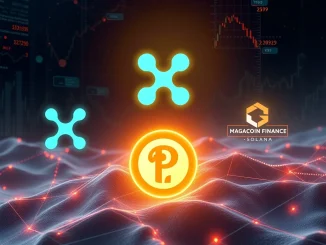
The world of digital assets is abuzz as a significant piece of crypto legislation moves closer to becoming law. A crucial stablecoin bill, known as the GENIUS Act, is slated for a vote in the US Senate this week, potentially setting a new standard for stablecoin regulation in the United States.
What is the GENIUS Act and Why the US Senate Vote Matters?
The GENIUS Act represents a concentrated effort by U.S. lawmakers to establish a clear regulatory framework for stablecoins. These digital currencies, pegged to stable assets like the U.S. dollar, have grown significantly, prompting calls for oversight to ensure financial stability and consumer protection. The upcoming US Senate vote is a critical step in this process.
Key provisions of the bill include:
- Mandatory requirements for stablecoin issuers to hold reserves backing their tokens, typically in the form of cash, cash equivalents, or government securities.
- Regular audits, particularly for larger issuers, to verify that reserves are adequate and properly managed.
- Implementation of consumer protection measures to safeguard users’ funds and provide clarity on redemption rights.
This legislative push signals a growing recognition in Washington of the need to integrate digital assets into existing financial structures, while mitigating potential risks.
GENIUS Act: Finding Bipartisan Support for Stablecoin Regulation
Initially facing hurdles, the GENIUS Act has reportedly garnered significant bipartisan support. This shift comes after revisions aimed at addressing concerns, particularly regarding the treatment of foreign stablecoin issuers and the extent of corporate involvement allowed within the framework.
Achieving bipartisan consensus on crypto legislation has been challenging. The progress of this stablecoin bill suggests a potential path forward for other digital asset regulations. Lawmakers from across the political spectrum appear to agree on the fundamental need for clear rules to foster responsible innovation and protect the financial system.
Navigating Controversy: The GENIUS Act and World Liberty Financial
Despite gaining broader support, the GENIUS Act is not without controversy. A notable point of contention revolves around U.S. President Trump’s reported ties to World Liberty Financial, a stablecoin issuer co-founded by his sons.
While the bill includes provisions designed to prevent current government officials from having direct involvement with regulated stablecoin issuers, critics point out that these restrictions do not explicitly extend to family members. This aspect has raised questions about potential conflicts of interest and transparency.
The inclusion of this controversy in discussions highlights the political complexities surrounding the passage of major crypto legislation in the current environment.
What’s Next? The House and the Future of this Stablecoin Bill
According to reports, there is speculation that the House of Representatives might opt to adopt the Senate’s version of the GENIUS Act instead of advancing its own stablecoin regulation proposal. This potential move is attributed to the broader bipartisan backing the GENIUS Act has secured in the Senate.
Should the Senate pass the bill, attention will quickly turn to the House. Adoption of the Senate version could significantly accelerate the legislative process, bringing the U.S. closer to having a comprehensive federal framework for stablecoins. The outcome of the US Senate vote will therefore have substantial implications for the trajectory of this important crypto legislation.
Summary: A Step Forward for Crypto Legislation
The impending US Senate vote on the GENIUS Act marks a significant moment for stablecoin regulation in the United States. The bill, which mandates reserves, audits, and consumer protections, has built bipartisan momentum despite controversy surrounding potential conflicts of interest. Its potential adoption by the House could pave the way for clear, federal-level crypto legislation. Stakeholders in the digital asset space are closely watching this development, recognizing its potential to shape the future landscape of stablecoins and broader cryptocurrency markets.



